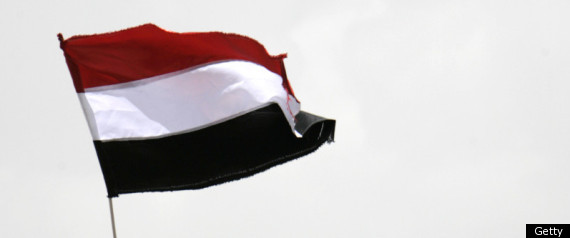U.S. Yemen Airstrike Targets Group With Al Qaeda Ties

U.S. Yemen Airstrike Targets Group With Al Qaeda Ties

SANAA, Yemen (AP) A U.S. airstrike on a Yemeni police station overrun by Islamic militants killed at least six fighters Thursday, a Yemeni security official said.
The strike targeted a region where radical groups believed to have al Qaeda links have exploited the country's political upheaval to take over entire towns.
A five-month-old popular uprising seeking to oust longtime President Ali Abdullah Saleh has led to a security breakdown across much of Yemen, the Arab world's poorest country and home to an active al Qaeda branch. In recent months, radical Islamist groups have overrun two towns and other areas in the country's southern Abyan province, the site of Thursday's strike.
The U.S. fears al Qaeda will exploit chaos in Yemen to step up operations there and has been aiding the Yemeni government's anti-terrorism efforts.
Yemeni security officials said Thursday's strike hit a police station in the town of Mudiya that militants had taken over, killing six who were sleeping inside. Security officials also said there were reports of people being wounded, but did not have details.
Resident Mohammed al-Mashraqi said weapons stored inside caused the station to catch fire after the strike. Dozens of militants rushed to the scene to evacuate the wounded and dig search the rubble for the dead, he said.
Security officials said the wounded were taken to a hospital in the militant stronghold town of Jaar, 80 miles (130 kilometers) southwest. Yemen army units have been trying to dislodge militants from there and the nearby town of Zinjibar, causing regular casualties on both sides.
The officials said the strike was carried out by an American plane because Yemeni planes aren't equipped for nighttime strikes.
They spoke on condition of anonymity because they were not authorized to brief the media.
Officials at the U.S. Embassy in Sanaa were not immediately available for comment.
U.S. Yemen Airstrike Targets Group With Al Qaeda Ties



